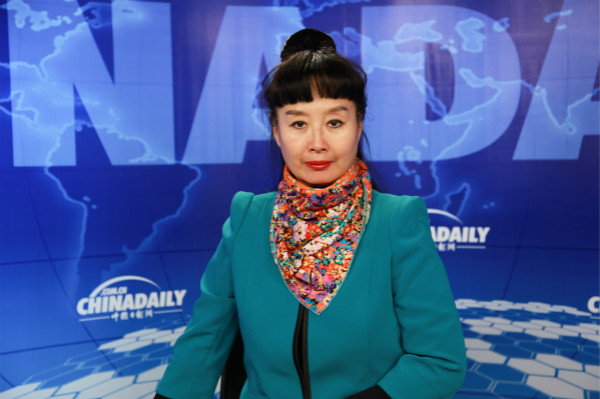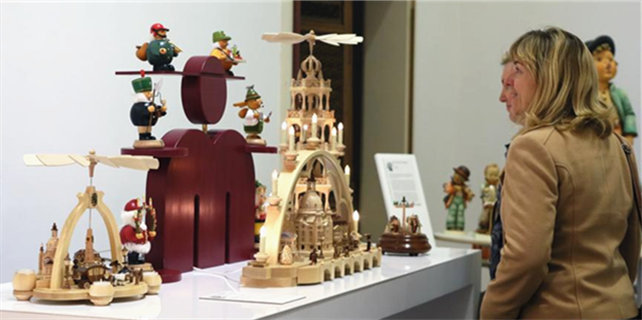Political advisor calls for the reverse of "culture deficit"
 |
|
Sun Ping,member of the Chinese People's Political Consultative Conference(CPPCC),dean of the School of Art and Research of Beijing Foreign Studies University, and a highly-regarded Peking Opera artist well known to the international community,was doing exclusive interview with China Daily website.[Photo by Zhang Guangteng/chinadaily.com.cn] |
Has Chinese culture's "going out" strategy really worked in global markets, especially in western ones? Compared to the presence and impact of western culture in China, from the point of view of its audiences, the capital volume it creates, and the number and variety of its expressions, it may even be concluded that China faces a "culture deficit".
That point was made by Sun Ping, dean of the School of Art and Research of Beijing Foreign Studies University, and a highly-regarded Peking Opera artist well known to the international community, in an exclusive interview with the China Daily website.
She has served as a member of the Chinese People's Political Consultative Conference (CPPCC) for 15 years. Given her over two decades of overseas experience and remarkable accomplishments in art, she works in the Foreign Affairs Committee under the CPPCC, concentrating on matters of culture and foreign affairs.
"I gradually found out there exists a huge gap between just performing some traditional opera for the Chinese community and actually letting local residents know what your culture really is. In speaking about whether or not the strategy of moving Chinese culture into global markets has really worked, that might be my perspective," said Sun.
As an example to explain this "culture deficit", she cites the different situations faced by organizers when it came to using art activities to promote Shakespeare and Tang Xianzu, a great Chinese playwright, who both died in the same year. In 2016 the governments of China and Britain co-hosted a series of activities to commemorate the 400th anniversary of the two artists’ deaths. The concept was equal promotion, but the plays of Tang xianzu were performed abroad no more than 30 times, while Shakespeare dramas were staged over 300 times. Consequently, few people got to know this Chinese playwright who, like Shakespeare, wrote immortal romance stories.
Sun pointed out that, "The key problem behind this phenomenon is the way you tell the stories. More detailed descriptions and delicate changes to presentation may present the works in a way that caters to foreign tastes. She plans to submit more concrete proposals around this topic to the committee to help China’s art market gain more international exposure."
Sun is also on the judges’ panel of the China National Arts Fund. The fund, sponsored by the Ministry of Culture, plays various roles and has some flexibility in encouraging development of outstanding art. She would like to formulate a specific proposal around how to combine the experiences of other national funds such as those in Japan and the US to guide the work of China’s national fund.
When asked how to make a good proposal as a CPPCC member, she emphasizes that a proposal should be gradually amended after gathering public responses. One of her previous proposals, to make Peking Opera part of the primary and secondary school curricula, caused something of a stir.
Many people, include some foreign media, mistook it as intending to put Model Operas into textbooks, or trying to increase students’ ability to perform Peking Opera by themselves. Sun organized a symposium during that year’s two sessions to hear suggestions from teachers and parents, and make adjustments: school programs would include material on Chinese traditional opera, and students would only need to learn to appreciate Peking Opera, and not to perform it themselves.
Sun concluded that more emphasis must be laid on promoting Chinese traditional culture, whether among students or as an export to other countries. “Our nation has already performed so greatly in various ways, including culturally. But for culture, more top-level policy design to facilitate it is critically needed.”
















